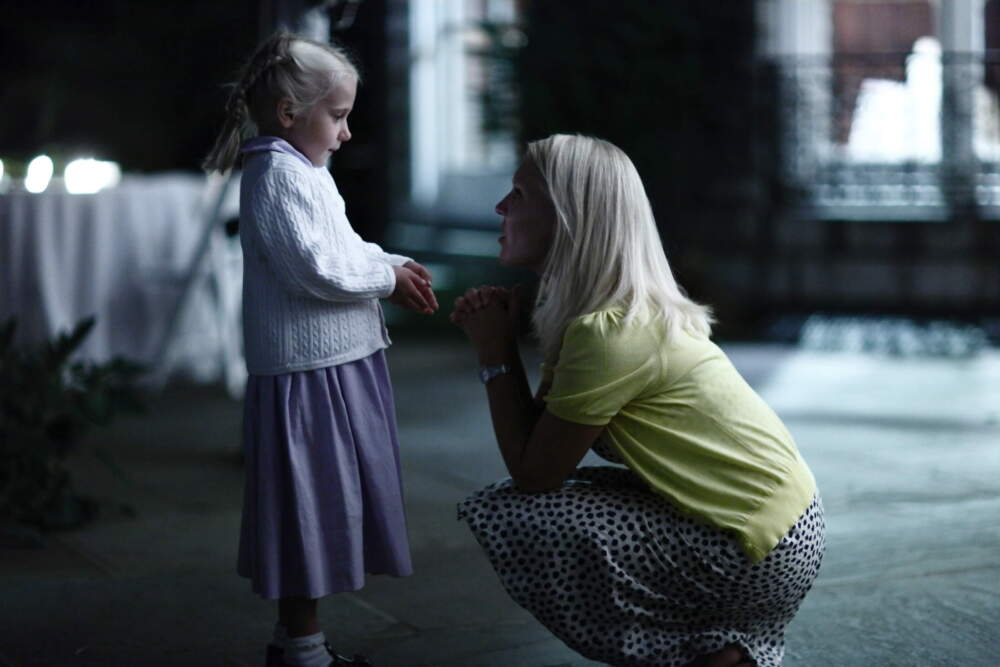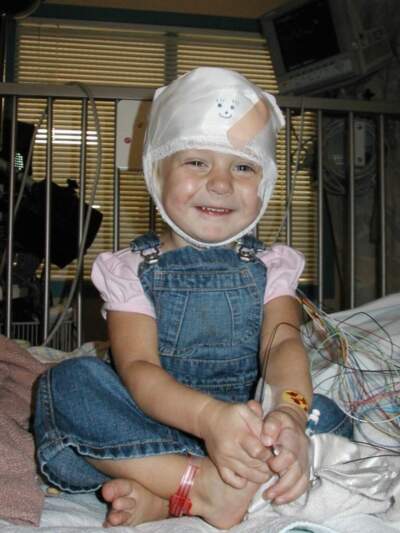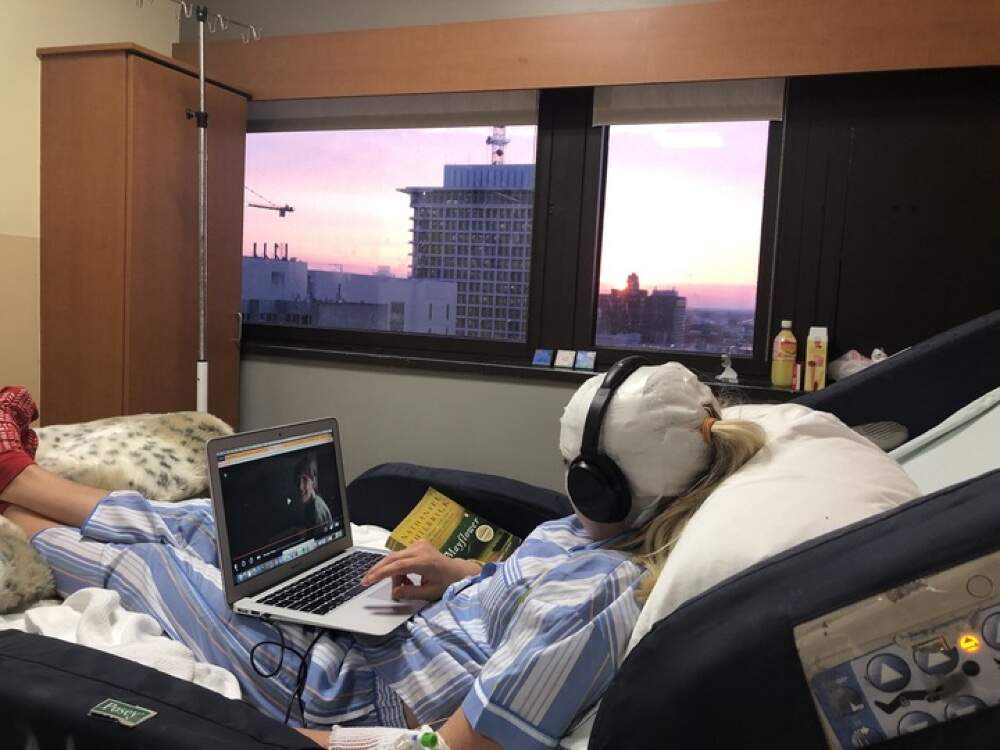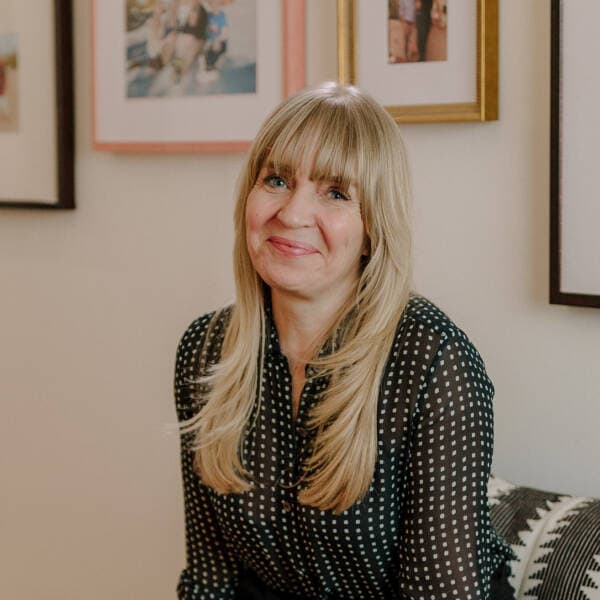Advertisement
Commentary
‘I’m right here. You’re not alone’: In the hospital, I can give my daughter what she needs

My daughter had her first brain surgery in February 2020, when she was 16 years old. Doctors drilled 15 holes into her beautiful head and inserted 15-centimeter-long electrodes into her brain tissue. They were trying to find the source of the seizures that had plagued her since she was 17 months old, because — like 30% of people who have epilepsy — no treatment worked for her.
After seven hours of surgery, we spent five more days and nights in the hospital, withholding her medication and watching her seize in the hopes of gathering data that could lead to a cure. It was hard, but I was hopeful. And when it was all over, and we were safe at home, I became very depressed.
For a long time, I didn’t understand why. Why wasn’t I relieved that she had returned to school and sports? Why wasn’t I glad to be back at work? Why did I feel so useless?

I was certain I’d do anything to stop the seizures, to see her sleep through the night, to someday drop her off at a college dorm like I had her big brother, like I surely would her little brother. I wanted her to have a normal life. I wanted to have a normal life. A stay in the hospital — brain surgery — is not normal life. So why was I so sad once we returned home?
In the days leading up to her surgery, I’d crossed items off long to-do lists and then made new lists. I’d packed button-up shirts since she wouldn’t be able to pull anything over her wire-covered head. I’d ordered a ceramic diffuser to cover up the hospital smells she hates. I’d packed snacks and slippers, blankets and bears. In my mind, the hospital stay was a logistical challenge I could solve. I was in control.
It was an unfamiliar feeling — one I hadn’t experienced since that muggy August afternoon in 2004 when she had her first seizure. I can still picture her scooting across the living room on a wooden rocking horse and then stopping suddenly, making a funny face that I thought might be a vomit reflex or a tic. That was weird, I thought, when she went back to rocking. But within 24 hours all hell had broken loose and my baby was sleeping in a metal crib in the PICU.
That was 15,000 seizures ago. The doctors said she would probably outgrow it. She didn’t. They thought medicine would work. It wouldn’t.
Advertisement
But in the confines of a hospital room, there are no milestones to miss, no classmates or cousins to be compared to, no brothers to battle.
And so for 15 years, I tried to make peace with this cruel condition and the cumulative tragedy of a chronic disease. As I crawled into bed each night, I racked my brain for new ideas. I scoured the internet, reading about treatments we hadn’t tried. I was sure a seizure would kill her. At her funeral, I explained to my husband, I needed to be able to say I had done everything I could to save her.
Every seizure causes brain damage, and the manifestations of that were often worse than the seizures themselves. Every new day brought a new disappointment. Sleepovers were a no-go. She couldn’t get her driver’s license. She was impulsive and forgetful. I had moments of profound patience and moments of violent exasperation. I explained the same things, over and over. I threatened as often as I reassured. I yelled (and continue to yell) too much. I dealt with hospitals and pharmacists, counselors and coaches. As a teenager, my daughter struggled to understand my actions as advocacy, to see that she and I both wanted the same thing — for her to have a chance to grow up and move out, to lead an independent life. That felt unattainable — a pipe dream — to both of us.
But in the confines of a hospital room, there are no milestones to miss, no classmates or cousins to be compared to, no brothers to battle. In the hospital, where we spent night after night, life has a different rhythm, one that firmly plants you in the here and now, one where the next step you have to take is very clear. I help her get dressed. I charge her computer so she can do her homework. I ask the nurses to wait as long as possible before inserting an IV because she hates them so much.
In the hospital, I can give my daughter what she needs. She sees me care for her in ways that are more obvious and concrete than they are at home. In the hospital, I think she understands that I’m doing the best I can.

“I love you, Mom,” she said to me in July 2019 as she and I ate dinner during another hospital visit. The wires from her head were tangled in the wheels of the over-bed table, while the sun set over the city. I had surprised her with onigiri, Japanese rice balls in the shape of animals. “Thanks for taking care of me,” she said. I froze mid-bite. I couldn’t remember the last time she had expressed gratitude. We locked eyes. She saw me. And I saw her. And for a moment, we knew we were in this together.
You spend so much of your life as a mother dealing with circumstances that are completely beyond your control. Wishing you could solve your children’s problems for them, even though you realize their most perilous journeys are the ones they have to travel alone. That feeling only intensifies as they get older, and you become a bystander in their lives. But when your child is in the hospital for anything from brain surgery to a broken bone, you get to help them in very tangible ways. You advocate, you comfort. You can make a difference.
My daughter usually has an aura, a warning, right before a seizure. She goes still for a moment and then gasps — a sound so loud I can often hear it from the other end of the house. Sometimes she yells for me. Other times it happens too fast. By the time I reach her, she can no longer talk. There is panic and fear in her eyes. She struggles to breathe. Her heart races. Her limbs are rigid and trembling, but she tries to reach for me. We’ve been through this thousands of times, but I always say the same thing. “I’m right here. You’re not alone. It’s almost over.” I’m not sure if she can hear me, but I say it anyway. She struggles to maintain eye contact as she loses control of her face. I repeat it over and over, for as long as the seizure lasts.
I think that’s also what I’m trying to say every time I read another medical study. Every time I seek a second — or fifth, or sixth — opinion. Every time I pack a bag for the hospital. When I add the button-up pajamas — I’m right here — the fuzzy socks — You’re not alone — the fluffy pillow — It’s almost over.
